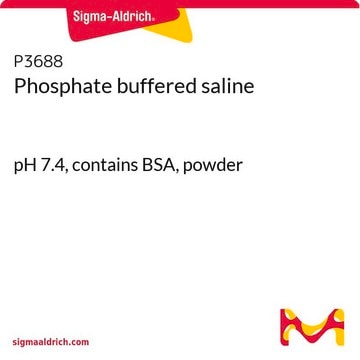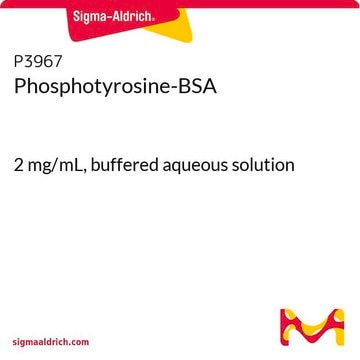P3717
Phosphoserine-BSA
2 mg/mL, buffered aqueous solution
Synonym(s):
Phosphoserine Antibody Inhibitor
About This Item
Recommended Products
sterility
non-sterile
Quality Level
form
buffered aqueous solution
concentration
2 mg/mL
shipped in
dry ice
storage temp.
−20°C
General description
Specificity
Working dilution is at least 2 μg/ml by the specific inhibition of the reactivity of Monoclonal Anti-Phosphoserine (Sigma Product No. P3430), used in immunoblotting of rat cerebral cortex extract, and in ELISA.
Application
Physical form
Disclaimer
Storage Class Code
10 - Combustible liquids
WGK
WGK 3
Flash Point(F)
Not applicable
Flash Point(C)
Not applicable
Regulatory Listings
Regulatory Listings are mainly provided for chemical products. Only limited information can be provided here for non-chemical products. No entry means none of the components are listed. It is the user’s obligation to ensure the safe and legal use of the product.
JAN Code
P3717-VAR:
P3717-.2ML-PW:
P3717-BULK:
P3717-.2ML:
Choose from one of the most recent versions:
Certificates of Analysis (COA)
Don't see the Right Version?
If you require a particular version, you can look up a specific certificate by the Lot or Batch number.
Already Own This Product?
Find documentation for the products that you have recently purchased in the Document Library.
Our team of scientists has experience in all areas of research including Life Science, Material Science, Chemical Synthesis, Chromatography, Analytical and many others.
Contact Technical Service




